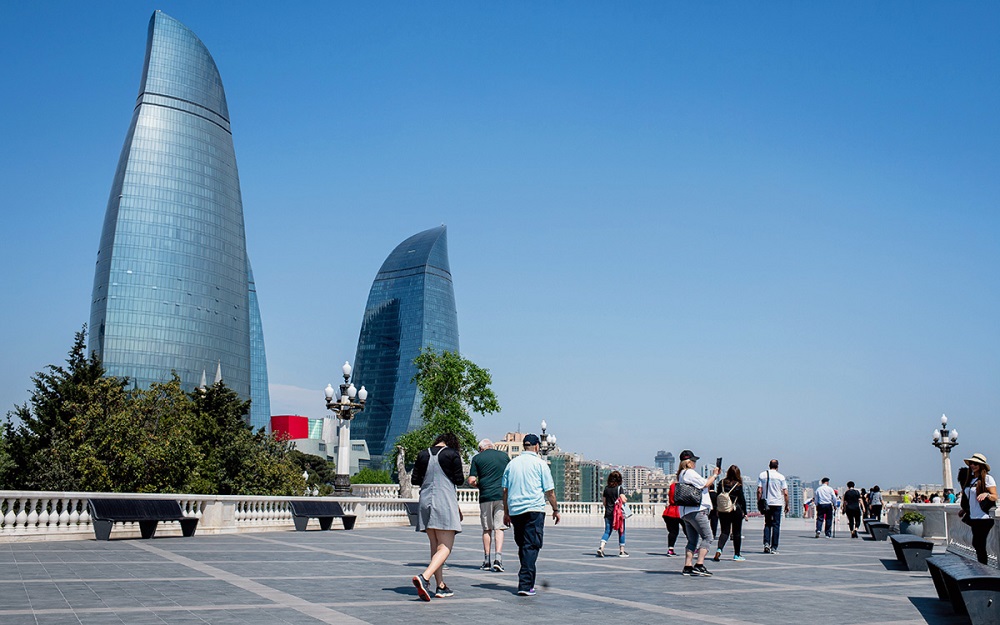Azerbaijan's 2025 budget: is it socially oriented?
Azerbaijan’s 2025 budget draft
The Ministry of Finance of Azerbaijan has published the draft state budget for 2025. The projected revenues are set at 36 billion 616 million manats [approximately $21 billion 539 million]. This is 228 million manats [around $134 million] or 0.6 percent higher than the approved figure for 2024.
- European Commission considers temporary suspension of visa-free regime for Georgia
- “A state cannot attack its own territory.” What happened in Karabakh a year ago: a commentary from Baku
- Abkhaz authorities are using public employees to push through the apartments law
Press Klub reports that, according to the draft, a reduction in state budget expenditures is planned for next year, compared to the 2024 forecast, by 74.7 million manats [about $44 million], or 0.2 percent. Total spending is estimated at 39 billion 667.6 million manats [around $23.3 billion].
The document sets the average annual export price for a barrel of crude oil in 2025 at $70, which is $5 less than the corresponding figure in the 2024 budget. In recent days, the price of a barrel of Azerbaijani oil has fluctuated around $75.
According to the budget draft, Azerbaijan plans to allocate 6 billion 658.3 million manats [around $3.9 billion] for defense and security in 2025. This is 6.6 percent less than the approved forecast for 2024.
There are plans to increase spending on education, healthcare, social protection, culture, the arts, information, sports, youth policy, and other similar activities.
Member of the Milli Majlis (parliament) of the 6th convocation from the ruling New Azerbaijan Party, Malahat Ibrahimgizi, told Turan that next year’s budget will be discussed during the autumn session of the new parliament [early parliamentary elections were held on September 1, 2024 – ed.].
“Azerbaijan has spent many years building a strong army to liberate its lands from occupation. This has been one of the main priorities. Ultimately, the 44-day war ended in our victory, thanks to an economically strong state, a strong army, and our commander-in-chief,” she said.
Ibrahimgizi emphasized that the key priorities of Azerbaijan’s state budget have always been defense, education, and social protection:
“The war ended in 2020, and we restored our territorial integrity. But over the past four years, Mr. President has ensured that the Azerbaijani army acquires the most modern weapons in the world. We are no longer in a military mindset. Our army is fully established, with its supply and management brought up to NATO standards.”
According to the MP, next year’s budget will be entirely focused on social protection.
Economist Natig Jafarli, one of the leaders of the Republican Alternative Party (ReAl), takes a slightly different approach to the issue. He told Radio Liberty that in Azerbaijan, a budget that includes expenditures on salaries and pensions is labeled as a “socially oriented budget,” and it is claimed that more than 40 percent of Azerbaijan’s budget is spent on social projects.
“This doesn’t quite align with international standards, as 40 percent of the budgets in developed countries is allocated to social spending. While Azerbaijan appears to meet these standards based on the published figures, the real issue lies in the classification. Salaries and pensions are the state’s responsibility and are not considered social expenditures,” he said.
The economist pointed out that “social expenditures” should be assessed based on spending on social infrastructure:
“Therefore, Azerbaijan needs to change the classification and concept of social spending. Expenditures on creating more social infrastructure—from libraries and road infrastructure to social projects that improve working and living conditions—should be considered social costs.”
According to Jafarli, although 40 percent of Azerbaijan’s state budget is allocated to “social payments,” because the overall budget is relatively small, the amounts allocated to salaries and pensions are also very low.




















